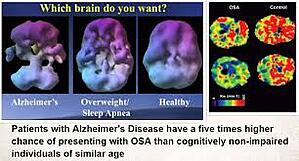
Alzheimer’s, on the other hand, is a condition that slowly causes people to have difficulty in performing their daily activities as a result of brain issues. When a person has Alzheimer’s, he/she may also have impaired memory.
In most cases, you will find both Alzheimer’s and dementia being used interchangeably. Generally, they refer to conditions affecting the brain and memory.
Many research papers indicate that a huge percentage of people at risk of getting Alzheimer’s and dementia are the elderly. To make a change, we are going to look at ways of reducing the risk of dementia and Alzheimer’s in seniors.
Physical Activity
One of the ways of reducing Alzheimer’s and dementia naturally is through regular exercises. Being physically active helps in improving blood circulation and keeping your heart and lungs healthy. The most important thing when trying to be physically active is to find in the proper exercises that fit your needs.
If you are having trouble getting a proper training guide you can follow the one below;
You should aim for about 159 minutes of aerobic activities per week. Here you can walk, ride a bike, or even push a lawnmower.
Try to attain 75 minutes of vigorous aerobic exercises, as this is essential in preventing Alzheimer’s and dementia. Here you can jog or swim fast.
Reducing Alcohol Intake
Drinking too much alcohol increases the chances of an older adult getting Alzheimer’s and dementia. Make sure you do not drink more than 14 units of alcohol per week. In case you drink more and have trouble reducing the amounts, here are some tips that can help;
Set a limit and abide by it.
Try drinking alcohol-free drinks or soft drinks.
Eat Healthily
alz2Your lifestyle habits significantly affect your chances of preventing Alzheimer’s and dementia. If you want to reduce the risks of dementia and Alzheimer’s, you should adopt a healthy lifestyle. A vital part of embracing a healthy lifestyle is eating healthy. This is what eating healthy entails;
You should eat proteins like fish and eggs.
You should eat starchy foods like maize.
Make sure that you feed on at least five portions of vegetables and fruits per day.
You should always stay hydrated. In essence, you should drink at least six glasses of water or sugar-free drinks every day.
You should limit your sugar intake.
Avoid Smoking
Smoking is one of the most dangerous things any human being can engage in as it comes with numerous health issues. Smoking is known to cause various cancers, diabetes type 2, stroke, and many other complications. If an older adult is smoking, he/she is putting himself/herself at high risk of getting dementia and Alzheimer’s. You can try some of these things to help you stop smoking if you do.
Try using a date/month to help you stop smoking. You can invent things like Stop Otober to motivate yourself to avoid smoking in October.
You can try a nicotine-free smoking product like an e-cigarette.
You can seek medical advice from a doctor to guide you on how to stop smoking.
Get the Sleep Your Brain Needs

People with sleep-disordered breathing experience repeated episodes of hypopnea (under breathing) and apnea (not breathing) during sleep. The most common form, Obstructive Sleep Apnea (OSA), occurs in around 3 in 10 men and 1 in 5 women, according to the Alzheimer’s Association.
Conclusion
Dementia and Alzheimer’s are two dangerous conditions that can negatively affect the life of a senior immensely. It is because of this that you should exercise. Exercise plays a vital role in reducing the chances of an older person from getting dementia and Alzheimer’s.
You should also avoid smoking. Apart from preventing dementia and Alzheimer’s, it helps in reducing the risk of cancers and stroke. As a senior, you should also eat healthily and reduce alcohol intake. In most cases, it can be challenging for a senior or his/her guardian to keep track of all of these things.
That is why the adult day care software was developed. Using this platform, you can organize all of these activities, keep track of everything, store data and do much more.
Getting a solid night’s sleep is crucial not only for feeling good the next day – there is increasing evidence that it may also protect against dementia,
What should your next step be? If you believe you or a loved one’s memory issues are related to sleep apnea, you need to contact your doctor or Alaska Sleep Clinic today for your free sleep assessment
@ 907-770-9104
 .
.










